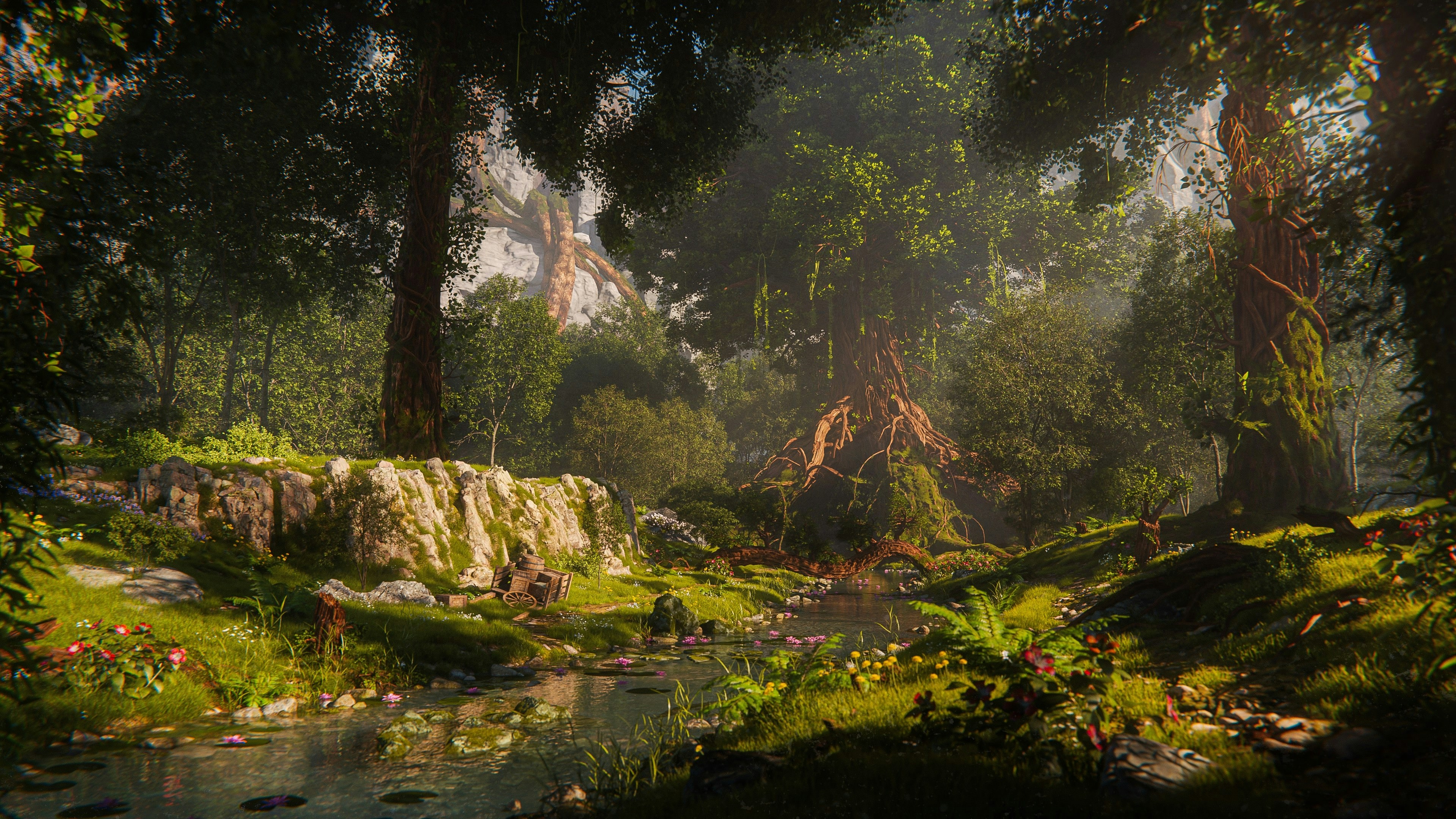Eco-Gaming Unleashed: Dive into Gameplay & Environmental Action!
As we navigate through the digital age, the gaming industry stands at a remarkable intersection of entertainment and environmental stewardship. "Eco-Gaming" is not just a buzzword; it represents a robust movement where conservation themes are not just on the sidelines but central to game design and player engagement. In this extensive exploration, we’ll delve into how ecological consciousness is rapidly becoming a driving force in gaming narratives, mechanics, and the very fabric of player communities, while also raising awareness about our planet's precarious state.
The Evolution of Eco-Gaming: A New Trend Takes Root
Once upon a time, video games were merely escapism—a chance to step away from reality. However, as climate threats loom large, developers are harnessing this escapism to inspire players toward real-world action. Eco-gaming encompasses various genres and platforms, promoting messages of sustainability while inviting players to reflect on their environmental impact. From adventure RPGs to simulation titles, the depth of eco-centric themes is gaining momentum.
Notable titles like Eco (an open-world game that emphasizes ecological balance) and Terraria (which includes themes of mining and environmental sustainability) are not only engaging players but also encouraging a dialogue about climate consciousness. This trend signifies a broader shift where developers recognize their responsibility to shape cultural conversations around environmental issues. The philosophy behind eco-gaming resonates with corporate titles as well; companies are investing in greener technologies and sustainable game production.
How Environmental Themes Influence Gameplay
Format and Mechanics in Eco-Gaming
Eco-gaming's rise is evident in how game mechanics are crafted around ecological themes. In many eco-games, resource management is paramount. Players learn to balance consumption and conservation, often facing challenges that mirror real-world environmental dilemmas.
For instance, players in Farming Simulator must deal with the principles of sustainable agriculture, promoting ecological storytelling alongside traditional gaming. Developers are exploring realistic resource depletion and restoration concepts. Yet, this doesn't solely involve complex mechanics; it can be as simple as storytelling that encourages players to think critically about their impact on the environment.
Engaging Narratives that Matter
Narrative plays a crucial role in eco-gaming. Storylines often involve quests for sustainability, where players must unite to restore environments or battle climate-based adversities. Protagonists frequently embody the role of environmental stewards, reinforcing the message that individual actions contribute to a more extensive collective outcome.
This aligns seamlessly with research on narrative psychology, which indicates that immersive storytelling can inspire behavioral change. Engaging with these narratives makes players feel more connected to the environmental issues faced today. Games like Spiritfarer, for instance, explore themes of caring for nature and letting go, stimulating sensitive conversations surrounding mortality and conservation.
Community Driven: Players as Eco-Activists
The Rise of Eco-Conscious Communities
A striking development within eco-gaming is the formation of passionate communities united by environmental motives. Players are increasingly vocal about sustainability, both in in-game actions and external advocacy. Communities formed around titles encourage players to share knowledge about conservation methods, sustainable practices, and environmental awareness.
Platforms like Discord and Reddit have served as launching pads, where motivated players engage in real-life initiatives, such as cleanup campaigns or reforestation efforts. These grassroots movements extend the impact of eco-gaming beyond the screen, demonstrating the genre's ability to inspire collective action.
Game Jams and Environmental Themes
Moreover, events like game jams challenge developers to create games with a focus on ecological themes, leading to innovative concepts that push the boundaries of traditional gameplay. For example, game jams have resulted in titles that confront climate change challenges or promote wildlife conservation, marrying creativity with pressing issues.
In fact, many successful indie games, such as Unpacking, emerged from these events, emphasizing the importance of time-sensitive challenges for budding developers. This ability for players and creators to collaborate in addressing environmental concerns reflects the true potential of gaming culture to impact the world positively.
Case Studies: Games Leading the Eco-Revolution
An In-Depth Look at Pioneering Titles
Several games have emerged as benchmarks in eco-gaming, marrying immersive storytelling, engaging mechanics, and a commitment to environmental consciousness. One standout is Animal Crossing: New Horizons, which emphasizes simple living in harmony with nature, encouraging players to create their island paradise responsibly.
In a contrasting vein, Farming Simulator engages players with agricultural management while integrating climate change issues, teaching responsible farming methods. Similarly, recent titles such as Fossil Fuel put players in control of the energy sector, prompting them to address renewable energy sources and sustainability practices.
These titles exemplify how gameplay mechanics can effectively contribute to enhancing ecological literacy. By crafting worlds laden with environmental themes, game developers are cultivating a new generation of eco-conscious players.
Beyond Gameplay: Real-World Impact
How Gamers Bring Change
The shift towards eco-gaming not only influences in-game narratives; it extends to real-world actions motivated by gaming experiences. Many players emerge from these gaming environments with a sense of purpose, channeling their insights into tangible efforts for the environment.
Initiatives such as the #PlayGreen movement encourage gamers worldwide to share their actions supporting local conservation efforts. Such campaigns underline how engaging with eco-themed gaming can lead to proactive behaviors—offering players the tools to foster personal and community-driven change.
Collaborations and Partnerships
Moreover, collaborations between game developers and environmental organizations further solidify the bridges between gaming and real-world change. For instance, non-profits partner with major game studios to promote awareness around issues like deforestation, pollution, and wildlife preservation through targeted campaigns and events.
This synergy is indicative of the gaming community's potential to drive large-scale environmental movements, presenting a substantial opportunity for developers to use their platforms responsibly.
Enhancing Awareness Through Eco-Gaming Tutorials
Tutorials and Guides in the Eco-Gaming Sphere
An essential part of eco-gaming is educating players on sustainable practices through tutorials and guides seamlessly integrated into gameplay. These resources can help players understand various conservation strategies relevant to their game worlds and translate that knowledge into their everyday lives.
Many games now offer tutorial modes that not only explain mechanics but also include contextual information about environmental sustainability, teaching players the importance of conservation while allowing them to progress in the game.
Skill Development and Eco-Friendly Practices
For players willing to learn and adopt more sustainable practices, some creators also incorporate challenges that require knowledge of real-world ecology. For example, a game might prompt players to manage resources efficiently, leading to prompts on how they can conserve water or reduce waste in real life.
This tutorial aspect does not just enhance gameplay; it encourages and empowers players to be change agents in a world facing ecological challenges.
Final Thoughts: Join the Movement Towards Eco-Gaming
As we witness the evolution of eco-gaming, it’s clear that developers and players alike have a vital role in creating and participating in a more eco-conscious narrative within gaming. These themes offer more than just a temporary escape; they prompt a deeper understanding and appreciation for the natural world and our responsibilities toward it.
The rise of eco-gaming isn’t merely an emerging trend—it's a reflection of our shared global urgency. Whether you're a casual gamer or a seasoned player, embracing eco-gaming means engaging in a broader conversation about our planet and taking meaningful actions to protect it.
By participating in this movement, we not only enrich our gaming experiences but also contribute toward a more sustainable future. So, let’s unite our passion for gaming with the responsibility of stewardship—one game at a time.
Key Links to Explore Further:
For those interested in the intersection of gaming and environmental activism, check out these resources:














